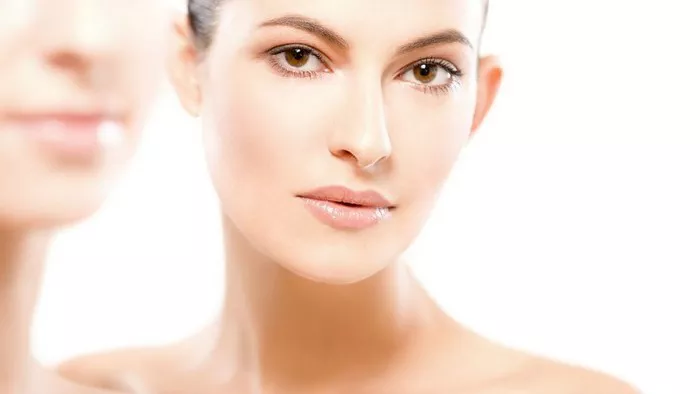Facial hair and skin care are two integral aspects of personal grooming that play a significant role in an individual’s appearance. Both require careful attention to ensure optimal health and aesthetics. In recent years, the growing popularity of facial hair grooming has made it an essential part of many men’s skincare routines. Whether it’s a clean shave, a neatly groomed beard, or mustache, understanding how facial hair affects skin health and vice versa is crucial for making informed decisions about grooming and skin care.
Simultaneously, skin care remains a fundamental aspect of personal hygiene and wellness. It not only helps maintain the health of your skin but also contributes to overall confidence and comfort. However, the interplay between facial hair and skin care is often overlooked, leading to common skin problems like irritation, acne, or dryness. To ensure that both your facial hair and skin receive the care they need, it’s important to follow certain guidelines and best practices when considering grooming treatments. This article will discuss key principles to follow for healthy facial hair growth, skin care, and the importance of maintaining both.
Understanding the Importance of Skin and Hair Care
The skin on the face is a delicate area that requires special care. It is constantly exposed to environmental factors such as sunlight, pollution, and harsh weather conditions. Additionally, the skin’s health is influenced by genetics, lifestyle choices, and daily habits. Facial hair also requires care and maintenance, as improper grooming or lack of attention can lead to irritation, ingrown hairs, and uneven growth.
Healthy skin is essential for facial hair to grow well, as it provides a clean and nourished environment for hair follicles. On the other hand, grooming facial hair can impact the skin’s condition if not done correctly. Skin irritation, redness, and inflammation are common issues when grooming facial hair. Therefore, understanding the connection between facial hair and skin care is important in ensuring both remain healthy.
Guidelines for Facial Hair Care
Facial hair grooming goes beyond simple shaving or trimming. It involves the correct techniques, tools, and products to ensure that the hair and the underlying skin are both well taken care of. Below are essential guidelines for maintaining healthy facial hair.
1. Choose the Right Tools for Grooming
When it comes to facial hair grooming, using the right tools is paramount. Razors, trimmers, and grooming scissors must be of good quality to ensure precision and avoid irritation. For shaving, always opt for a sharp razor to reduce the risk of cuts or razor burn. Dull razors can cause discomfort, leading to ingrown hairs or skin irritation. Regularly replacing blades is crucial to maintaining sharpness and hygiene.
For those with beards or mustaches, using a beard trimmer can help achieve an even and well-groomed look. Ensure that the trimmer has adjustable settings to control the length of the hair and prevent over-trimming.
2. Shave in the Right Direction
Shaving against the grain of the hair can cause irritation and razor burn. It is better to shave in the direction of hair growth to minimize discomfort.
For those with sensitive skin, using a gentle technique and avoiding multiple passes over the same area will help prevent skin irritation. If you have thick or coarse facial hair, consider using an electric razor or a safety razor, as they are less likely to cause nicks and cuts.
3. Exfoliate to Prevent Ingrown Hairs
Exfoliating the skin regularly is essential, particularly for those with facial hair. Exfoliation removes dead skin cells and helps prevent ingrown hairs by allowing the hair to grow properly.
It also unclogs pores, which reduces the likelihood of acne or skin congestion. Use a gentle exfoliating scrub or chemical exfoliants containing salicylic acid to avoid irritation. Exfoliating two to three times a week can help maintain a smooth and clear complexion.
4. Moisturize the Skin and Facial Hair
Dryness is a common issue for individuals with facial hair, especially in colder weather. Using a moisturizer is essential for both the skin underneath the hair and the facial hair itself. A good moisturizer hydrates the skin and prevents it from becoming dry or flaky. Additionally, facial hair oils or balms are ideal for keeping the hair soft and well-conditioned.
Beard oils, for instance, contain nourishing ingredients such as jojoba oil, argan oil, and vitamin E, which moisturize both the skin and the hair. These oils can also help reduce itchiness and promote healthy hair growth. Be sure to choose a moisturizer or beard oil that suits your skin type to avoid clogging pores or causing acne.
5. Trim and Maintain Regularly
Facial hair requires regular trimming to maintain its shape and health. Whether it’s a beard, mustache, or goatee, trimming helps remove split ends and ensures that the hair grows evenly. You don’t need to trim every day, but regular maintenance is necessary for a well-groomed look. If you’re growing a beard, remember to also trim the neckline and cheek line for a clean, polished appearance.
Guidelines for Skin Care with Facial Hair
Caring for your skin when you have facial hair involves more than just cleaning the face. A healthy skincare routine that complements facial hair care is crucial for preventing common skin problems. Below are essential tips for skin care when considering facial hair treatments.
1. Cleanse Your Face Regularly
Facial hair can trap dirt, oil, and bacteria, which can lead to breakouts or irritation if not cleaned properly. Cleansing the face twice a day is important to remove impurities and ensure that the skin underneath the facial hair remains healthy. Use a gentle facial cleanser that is free from harsh chemicals to avoid stripping the skin of its natural oils.
When cleaning the face, gently massage the cleanser into the skin and rinse with lukewarm water. Avoid using hot water, as it can dry out the skin and irritate sensitive areas, especially around the beard or mustache.
2. Avoid Over-washing or Over-exfoliating
While cleansing is important, over-washing the face can lead to dryness and imbalance in the skin. Similarly, over-exfoliating can irritate the skin and cause redness or inflammation. Stick to a simple skincare routine that involves washing your face in the morning and evening and exfoliating two to three times a week. Overusing exfoliants or harsh cleansers can lead to irritation, which may negatively impact both your skin and facial hair growth.
3. Protect Your Skin from the Sun
Whether you have facial hair or not, sun protection is a key aspect of skincare. Prolonged sun exposure can damage the skin, causing premature aging, pigmentation, and increased risk of skin cancer. If you have facial hair, ensure that the areas exposed to the sun, such as the forehead and cheeks, are protected with sunscreen.
Look for a broad-spectrum sunscreen with SPF 30 or higher and apply it every morning as the final step of your skincare routine. Even on cloudy days, UV rays can affect the skin, so daily sunscreen use is important for maintaining healthy skin.
4. Keep Facial Hair Clean
The skin under your facial hair can easily become clogged with oil and dirt. Regularly washing your beard or mustache with a mild shampoo or beard wash is essential to keep it clean. Avoid using regular body shampoo or soap, as these can dry out the hair and irritate the skin. Instead, choose a gentle product specifically designed for facial hair.
In addition to washing, consider using a beard conditioner to keep your facial hair soft and hydrated. This can also prevent dandruff or dry patches that may appear in the beard area.
5. Treat Skin Irritations Promptly
Sometimes, shaving or grooming facial hair can cause irritation, bumps, or rashes. It is important to address these issues immediately to prevent further skin damage. For razor burns or nicks, use a soothing aftershave or aloe vera gel to calm the skin. If you experience ingrown hairs, try using a topical treatment with salicylic acid to help remove the clog and encourage proper hair growth.
The Role of Professional Treatments
In addition to at-home grooming and skincare, some individuals may consider professional facial hair and skin treatments to improve their appearance. These treatments can provide deeper care and address specific concerns. For example, if you have stubborn ingrown hairs or persistent acne under your beard, professional treatments like chemical peels or laser therapy might be helpful.
Before undergoing any professional treatments, it’s important to consult with a dermatologist or licensed esthetician. They can evaluate your skin and recommend the most appropriate treatments based on your individual needs.
Conclusion
Facial hair and skin care go hand in hand, and understanding how to care for both is essential for achieving a healthy, well-groomed appearance. By following proper guidelines for facial hair care, such as using the right tools, shaving in the correct direction, and maintaining regular trims, you can ensure that your facial hair remains soft and stylish. Likewise, a consistent skincare routine that includes cleansing, moisturizing, and sun protection will help keep the skin beneath your facial hair healthy and radiant. With these guidelines, you can enjoy the benefits of both facial hair and skin care without sacrificing one for the other.
Related Topics

































